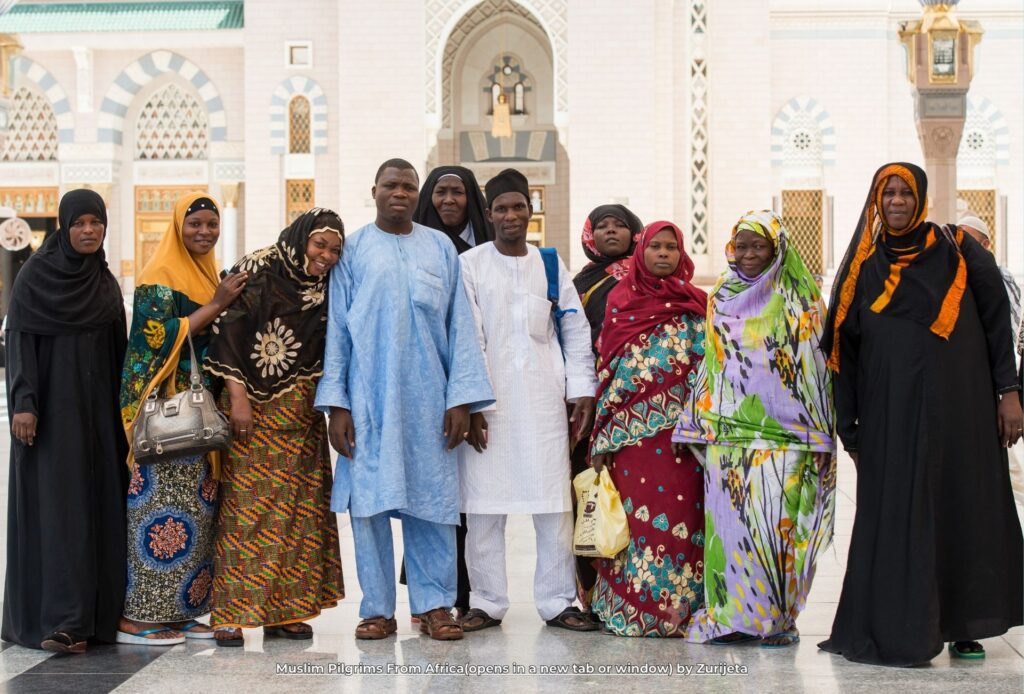Advancing equitable and peaceful communities: The Practice of Social Solidarity Through ‘Takaful’

Credit: ©Zurijeta via Canva.com
| Giver: | Community, Individual, Registered Organization |
|---|---|
| Receiver: | Individual or unstructured/informal group |
| Gift: | Items, Land, Money, Time |
| Approach: | Philanthropy |
| Issues: | 1. No Poverty, 10. Reduced Inequalities, 16. Peace, Justice and Strong Institutions, 2. Zero Hunger, 3. Good Health and Well-Being, 4. Quality Education, 5. Gender Equality, 6. Clean Water and Sanitation, 8. Decent Work and Economic Growth |
| Included in: | African Philanthropy Narratives |
A central philanthropic practice in African Muslim-majority countries, takaful is an Arabic term for the practice of social solidarity and mutuality among members of society. Takaful is an overarching value of social justice and equity that advocates the practice of compassion towards and cooperation with each other. It is well established that the existence of more equal societies and social capital enhances peace and harmony; takaful seeks to do just that by deconstructing social divides, hierarchies, and economic segregation that stand in the way of human harmony and a dignified life for all.
Takaful in practice, has many expressions, including Zakat and sadaqah, which address inequality from an income redistribution perspective. Zakat is an obligatory sharing of wealth for those with discretionary income, and it follows a specific financial method in Islamic law and tradition based on a defined percentage of excess wealth and specific categories for eligibility. Sadaqah, on other hand, is a voluntary expression of philanthropic giving and can include monetary and other forms of giving. Its open-ended framing makes it a versatile faith-based giving instrument for community empowerment. Another more institutionalized expression of takaful is waqf. Similar to and preceding the common law trusts and western foundations, waqf allows the donation of moveable and immovable assets to be held in perpetuity towards the funding of a community or public cause. Over time, zakat, sadaqah and waqf have also evolved to become development tools, offering more flexible and innovative solutions to the growing inequities and development challenges we face.
Not Simply Charity!
Takaful is more than just charity or income redistribution practiced by the well to do towards those with little monetary means.. It is common to find even people at lower economic rungs of society making in-kind donations of food etc. to others in their community in times of economic stress and/or also volunteering their time to support elderly neighbors or children in times of need (often referred to as rieaya). Beyond that, takaful is also an emotionally driven concept that seeks to cultivate the practice of empathy and compassion. The aim of takaful is to foster inclusion and unity by upholding values of trust, cooperation, and interdependence, knowing that these values are critical to cohesion and peaceful communities. Takaful’s underlying philosophy is that we are all one and that the whole is the sum of the parts. It is in the benefit for all of us if disadvantaged members of a community are supported and empowered. While it is likely that orphans, elderly, and people with disabilities receive the greatest attention, nonetheless, all social and demographic groups engage in - and benefit from - takaful.
Takaful also extends beyond immediate communities, family, and neighbors to include strangers, individuals, and communities across borders regardless of their race, gender, color or religion. In 2022, Sierra Leone — a Muslim majority country — topped the CAF giving index for people helping someone they did not know. This is an important marker of the role of trust and strengthening ties with others even if beyond immediate communities.
A Spike in Civic Action in Times of Crisis
The outpouring of humanitarian relief support towards disaster-affected communities and the spike in civic action during times of crisis is another manifestation of takaful, whether it is supporting the distribution of food, supporting access to hygiene supplies or simply buying groceries for the elderly who cannot leave their homes. While donations usually experience a decline during economic downturns, the economic pressures triggered, for instance, by the COVID lockdown did not significantly alter the level of donations by households. In some cases, philanthropic organizations that already had digital systems reported a rise and uninterrupted flow of donations.
The social solidarity and cohesion that takaful practices can unleash are boundless. If practiced in full spirit, it promises to advance more equitable and peaceful communities.
Contributor: Heba Abou Shnief
| Source type | Full citation | Link (DOI or URL) |
|---|---|---|
| Publication |
Putnam, Robert D. “Bowling alone: America’s declining social capital.” In The city reader, pp. 188-196. Routledge, 2015. |
- |
| Publication |
Abou Shnief, Heba. “An Enabling Arab Civic Space for Resilience, Growth and Sustainability”. Arab Foundations Forum, December 2022. |
https://arabfoundationsforum.org/wp-content/uploads/2023/03/Enabling-Arab-civic-Space-T12C05.pdf. |